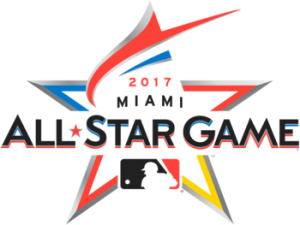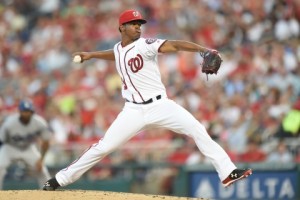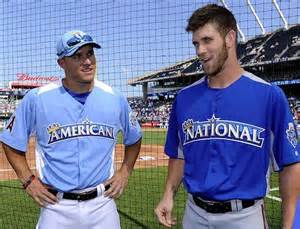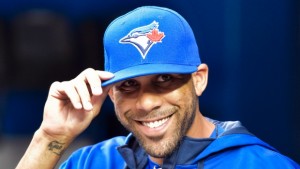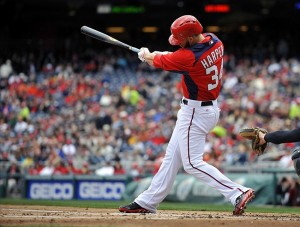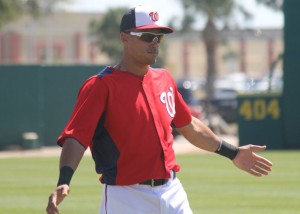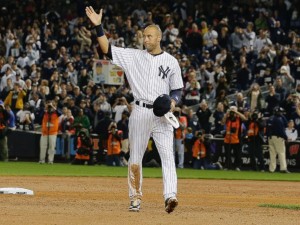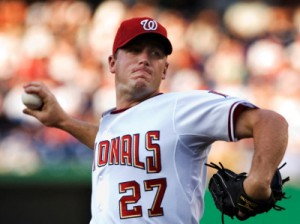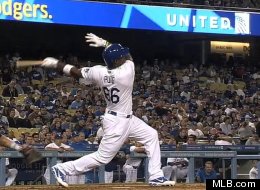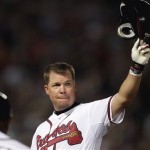Here’s my annual Nationals All Star selection post.
Fun Trivia:
- All-time leader in Nats all-star appearances: Harper with 5 appearances. Technically Scherzer also has been named 5 times but some pre-dated his time here.
- All-time leader in All-Star Game starts: Also Harper, getting his 4th start.
- Total number of Starters in the history of the Franchise: Now is Eight; Harper 4-times, and one each for Soriano, Murphy, Zimmerman and Scherzer
- Most all-star players named in a single year: 5 in both 2016 and now 2017.
- Least all-star game players named in a single year: 1 in multiple years during the “dark years” of 2006 through 2011.
(* == All-Star game starter)
- Nationals All-Star representatives: Bryce Harper*, Daniel Murphy*, Ryan Zimmerman*, Max Scherzer*, Stephen Strasburg
- Snubs: Anthony Rendon, Gio Gonzalez
- Narrative: For the second year in a row, the Nats are well and properly represented in the All Star Game. We have three starters named in the field, including Zimmerman who beats out a slew of 1B sluggers in the NL to not only make the team but get his first start. Its also likely i’ll be editing this post and adding in Scherzer as an additional starter; he is the obvious choice to start the game for the NL given his first half production (7/10/17 update: yes indeed we did). Rendon is having a very quiet solid season and is in the “last 5” popular vote, but he seems unlikely to win given that last year’s MVP Kris Bryant is also in the voting (Update: neither guy got in). Gonzalez misses out despite having a better first half than Strasburg by nearly any statistic; he’s having a career year but seems unlikely to get rewarded with his 3rd ASG appearance. There’s no other real snub from our 2017 team; certainly there’s nobody in the bullpen meriting a spot, and Trea Turner‘s torrid 2016 2nd half did not translate into the 2017 season (not to mention, he’s had two separate D/L trips). Once again i’m slightly perturbed that Harper continues to refuse to participate in the HR derby; why the reticence? Its a fun event that is quickly becoming better than the actual game itself and practically every other slugger is participating. Is he afraid to lose? On a larger scale, i’m really happy to see (finally) that deserving rookies are named: Aaron Judge and Cody Bellinger are both named and are both on the inside track for ROY awards; too many times in the past we see deserving rookies unnamed. On July 10th, the fourth Nat starter was named: Scherzer got the starting pitcher nod, a first for the Nats. August Update: Rendon’s omission is looking even more ridiculous; he’s top 5 in the league in bWAR.
- Nationals All-Star representatives: Bryce Harper*, Stephen Strasburg, Daniel Murphy, Wilson Ramos, Max Scherzer (named as replacement for Strasburg on 7/8/16),
- Possible Snubs: Danny Espinosa, Tanner Roark
- Narrative: The four obvious candidates from the Nats this year were all initially correctly selected, though voting shenanigans out of Chicago elected Ben Zobrist over Daniel Murphy by a scant 500 votes. I thought perhaps Strasburg would have a chance to start the game, given his 12-0 record, but it seems the team pre-empted any such thought when Scherzer’s naming occurred. For the first time writing this post, I can’t really name any “snubs” and the team has (finally?) earned the proper respect it deserves in terms of naming its players properly. Espinosa had a week for the ages just prior to the end of voting but really stood little chance of selection in the grand scheme of things. He’s not really a “snub” but is worthy of mention based on his resurgent year. At the break, Espinosa ranked 3rd in NL fWAR but 7th or 8th in bWAR thanks to differing defensive value metrics, so maybe/maybe not on him being a “snub.” As pointed out in the comments, even I missed the sneaky good season Roark is having; he’s 12th in the NL in bWAR at the break and 9th in fWAR but was left off in favor of any number of starters that stand below him in value rankings. Unfortunately for fans (and for Harper’s “Make Baseball Fun again” campaign, he opted to skip the Home Run Derby again. I guess its kind of like the NBA superstars skipping the dunk contest; the Union should really do a better job of helping out in this regard. The new format is fantastic and makes the event watchable again; is it ego keeping him from getting beat by someone like Giancarlo Stanton?
- Nationals All-Star representatives: Bryce Harper*, Max Scherzer
- Possible Snubs: Yunel Escobar, Drew Storen
- Narrative: Harper not only made it in as a starter for the 2nd time, he led the NL in votes, setting a MLB record for total votes received. This is no surprise; Harper’s easily in the MVP lead for the NL thanks to his amazing first half (his split at the half-way point of the season: .347/.474/.722 with 25 homers and an astounding 225 OPS+). I guess he won’t be earning the “Most overrated player” award next year. That Harper is electing to skip the Home run derby in a disappointment; his father is nursing an arm injury can cannot throw to him in the event. In a weird year for the Nats, the only other regular worth mentioning is newly acquired Escobar, who is hitting above .300 and filling in ably at multiple positions that, prior to this year, he had never played. Storen is having another excellent regular season … but at a time when mandatory members from each team often leads to other closers being selected (there are 5 NL closers and 7 AL relievers), the odds of him making the All-Star team were always going to be slim. Scherzer deservedly makes the team and probably would have been the NL starter; he’s got sub 2.00 ERA and FIP and leads all NL pitchers in WAR at the mid-way point of the season. But his turn came up in the final game of the first half, making him ineligible for the game and forcing his replacement on the roster.
As a side note, the 2015 All-Star game will go down as the “Ballot-Gate” game thanks to MLB’s short-sighted plan to allow 30+ online ballots per email address. This led to severe “ballot stuffing” by the Kansas City Royals fans, led to MLB having to eliminate 60 million+ fraudulent ballots, but still led to several Royals being elected starters over more deserving candidates.
- Nationals All-Star representative: Jordan Zimmermann (Update post-publishing: Zimmermann strained a bicep, and had to withdraw from the ASG. For a bit it looked like the Nats wouldn’t even have a representative, until Tyler Clippard was named on 7/13/14).
- Possible Snubs: Adam LaRoche, Anthony Rendon, Rafael Soriano, Drew Storen
- Narrative: Zimmermann’s been the best SP on the best pitching staff in the majors this year, and thus earns his spot. I find it somewhat odd that a first place team (or near to it) gets just one representative on the team (as discussed above). Rendon tried to make the team via the “last man in” voting, but historically Nationals have not fared well in this competition (especially when better known players from large markets are in the competition, aka Anthony Rizzo from the Chicago Cubs), and indeed Rendon finished 4th in the last-man voting. LaRoche is having a very good season, almost single handedly carrying the Nats offense while major parts were out injured, but he’s never going to beat out the slew of great NL first basemen (Joey Votto couldn’t even get into this game). Soriano has quietly put together one of the best seasons of any closer in the game; at the time of this writing he has a 1.03 ERA and a .829 whip; those are Dennis Eckersley numbers. But, the farce that is the all-star game selection criteria (having to select one player from each team) means that teams need a representative, and deserving guys like Soriano get squeezed. Then, Soriano indignantly said he wouldn’t even go if named as a replacement … likely leading to Clippard’s replacement selection. The same goes for non-closer Storen, who sports a sub 2.00 ERA on the year. Advanced stats columnists (Keith Law) also think that Stephen Strasburg is a snub but I’m not entirely sure: he may lead the NL in K’s right now and have far better advanced numbers than “traditional,” but its hard to make an argument that a guy with a 7-6 record and a 3.50+ ERA is all-star worthy.
- Nationals All-Star representatives: Bryce Harper*, Jordan Zimmermann
- Snubs: Stephen Strasburg, Ian Desmond
- Narrative: Harper comes in 3rd in the NL outfielder voting, ahead of some big-time names, to become only the second Nationals position player elected as an All-Star starter. He was 4th in the final pre-selection vote, so a big last minute push got him the starter spot. Harper also becomes the first National to participate in the Home Run Derby. Zimmermann was 12-3 heading into the game and was on mid-season Cy Young short lists in July in a breakout season. Strasburg’s advanced stats are all better than Zimmermann’s, but his W/L record (4-6 as the ASG) means he’s not an all-star. It also probably doesn’t help that he missed a few weeks. Desmond loses out to Troy Tulowitzki, Everth Cabrera and Jean Segura. Tulowitzki was having a very solid year and was a deserving elected starter, while Cabrera and Segura are both having breakout seasons. Desmond was on the “Final vote” roster, but my vote (and most others’ I’m guessing) would be for Yasiel Puig there ([Editor Update: Desmond and Puig lost out to Freddie Freeman: I still wished that Puig finds a way onto the roster but ultimately he did not and I believe the ASG was diminished because of it). Gio Gonzalez, Ryan Zimmerman, and Rafael Soriano are all having solid but unspectacular years and miss out behind those having great seasons.
- Nationals All-Star representatives: Stephen Strasburg, Gio Gonzalez, Ian Desmond, Bryce Harper
- Possible Snubs: Adam LaRoche, Craig Stammen
- Narrative: The two SPs Strasburg and Gonzalez were the obvious candidates, and my personal prediction was that they’d be the only two candidates selected. Gonzalez’ first half was a prelude to his 21-win, 3rd place Cy Young season. The inclusion of Desmond is a surprise, but also a testament to how far he’s come as a player in 2012. Harper was a last-minute injury replacement, but had earned his spot by virtue of his fast start as one of the youngest players in the league. Of the “snubs,” LaRoche has had a fantastic come back season in 2012 but fared little shot against better, more well-known NL first basemen. Stammen was our best bullpen arm, but like LaRoche fared little chance of getting selected during a year when the Nats had two deserving pitchers selected.
- Nationals All-Star representatives: Tyler Clippard
- Possible Snubs: Danny Espinosa, Michael Morse, Drew Storen, Jordan Zimmermann
- Narrative: While Clippard was (arguably) the Nats best and most important reliever, I think Zimmermann was a more rightful choice. He was 10th in the league in ERA at the time of the selections and has put in a series of dominant performances. Meanwhile Espinosa was on pace for a 28-homer season and almost a certain Rookie-of-the-Year award (though a precipitous fall-off in the 2nd half cost him any realistic shot at the ROY), and perhaps both players are just too young to be known around the league. Lastly Morse is certainly known and he merited a spot in the “last man in” vote sponsored by MLB (though he fared little chance against popular players in this last-man-in voting).
- Nationals All-Star representatives: Matt Capps
- Possible Snubs: Adam Dunn, Josh Willingham, Ryan Zimmerman, Stephen Strasburg
- Narrative: Capps was clearly deserving, having a breakout season as a closer after his off-season non-tender from the Pirates. The 3-4-5 hitters Zimmerman-Dunn-Willingham all had dominant offensive seasons as the team improved markedly from its 103-loss season. But perhaps the surprise non-inclusion was Strasburg, who despite only having a few starts as of the all-star break was already the talk of baseball. I think MLB missed a great PR opportunity to name him to the team to give him the exposure that the rest of the national media expected. But in the end, Capps was a deserving candidate and I can’t argue that our hitters did anything special enough to merit inclusion.
- Nationals All-Star representatives: Ryan Zimmerman
- Possible Snubs: Adam Dunn
- Narrative: The addition of Dunn and Willingham to the lineup gave Zimmerman the protection he never had, and he produced with his career-best season. His first and deserved all-star appearance en-route to a 33 homer season. Dunn continued his monster homer totals with little all-star recognition.
- Nationals All-Star representatives: Cristian Guzman
- Possible Snubs: Jon Rauch
- Narrative: The first of two “hitting rock-bottom” seasons for the team; no one really merited selection. Zimmerman was coming off of hamate-bone surgery in November 2007 and the team was more or less awful across the board. Rauch performed ably after Cordero went down with season-ending (and basically career-ending) shoulder surgery. Guzman’s selection a great example of why one-per-team rules don’t make any sense. Guzman ended up playing far longer than he deserved in the game itself by virtue of the 15-inning affair.
- Nationals All-Star representatives: Dmitri Young
- Possible Snubs: Ryan Zimmerman, Shawn Hill (though I wouldn’t argue for either)
- Narrative: Young gets a deserved all-star appearance en route to comeback player of the year. Zimmerman played a full season but didn’t dominate. Our 2007 staff gave starts to 13 different players, most of whom were out of the league within the next year or two. Not a good team.
- Nationals All-Star representatives: Alfonso Soriano*
- Possible Snubs: Nick Johnson, Ryan Zimmerman, Chad Cordero
- Narrative: Soriano made the team as an elected starter, the first time the Nats have had such an honor. Our pitching staff took massive steps backwards and no starter came even close to meriting a spot. Cordero was good but not lights out as he had been in 2005. Soriano’s 40-40 season is a poster child for “contract year” production and he has failed to come close to such production since. The team was poor and getting worse. Johnson had a career year but got overshadowed by bigger, better first basemen in the league (a recurring theme for our first basemen over the years).
- Nationals All-Star representatives: Livan Hernandez, Chad Cordero
- Possible Snubs: Nick Johnson, John Patterson.
- Narrative: The Nats went into the All Star break surprisingly in first place, having run to a 50-31 record by the halfway point. Should a first place team have gotten more than just two representatives? Perhaps. But the team was filled with non-stars and played far over its head to go 50-31 (as evidenced by the reverse 31-50 record the rest of the way).
